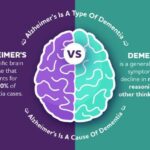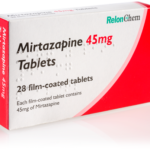How Does Dementia Kill You? (4 Major Ways)

Dementia is a general term used to describe a decline in mental ability that is severe enough to interfere with daily life. It is not a specific disease, but rather a group of symptoms that are associated with a decline in cognitive function. These symptoms can include memory loss, difficulty communicating, impaired judgment, disorientation, and changes in mood and behavior.
Dementia has been recognized as a medical condition for centuries, although it was not always understood or properly diagnosed. In the late 19th and early 20th centuries, physicians began to recognize that memory loss and other cognitive symptoms could be caused by physical changes in the brain. The term “dementia” was first used in the mid-19th century to describe a decline in mental function that was not associated with a specific illness or injury.
In the early 20th century, a German psychiatrist named Alois Alzheimer described the case of a patient who experienced severe memory loss, confusion, and other symptoms that were not consistent with any known condition at the time. After the patient’s death, Alzheimer examined the brain and identified distinct abnormalities, including plaques and tangles, which are now recognized as hallmarks of Alzheimer’s disease.
Over the following decades, research into dementia and related conditions continued to expand, leading to improved diagnosis, treatment, and understanding of these conditions. Today, dementia is recognized as a major public health issue, with an estimated 50 million people worldwide living with some form of dementia. Ongoing research continues to explore the causes and potential treatments for dementia, with the hope of improving outcomes for patients and their families.
Dementia can be caused by a variety of conditions, including Alzheimer’s disease, Parkinson’s disease, Huntington’s disease, Creutzfeldt-Jakob disease, and certain medications among others. The exact cause of dementia is not always known, but it is thought to be related to a combination of genetic, environmental, and lifestyle factors.
How Common is Dementia?
Dementia is a common condition, especially among older adults. According to the World Health Organization (WHO), an estimated 50 million people worldwide are living with dementia, and there are nearly 10 million new cases each year.
The prevalence of dementia increases with age, with a higher incidence in people over the age of 65. However, dementia can occur in younger individuals as well. In addition, some types of dementia, such as Alzheimer’s disease, are more common than others.
As the global population ages, the number of people living with dementia is expected to increase significantly in the coming years. It is estimated that by 2050, the number of people living with dementia will triple to over 150 million.
How Does Dementia Kill You
Dementia itself is not a fatal condition, but the progressive decline in cognitive function that it causes can increase the risk of other health complications that can ultimately lead to death. Some of the ways in which dementia can contribute to mortality include:
1. Increased susceptibility to infections: As dementia progresses, the immune system may become weaker, making individuals more vulnerable to infections such as pneumonia, urinary tract infections, and sepsis.
2. Malnutrition and dehydration: As memory and cognitive function decline, individuals with dementia may forget to eat and drink, or may have difficulty with basic tasks like cooking or using utensils. This can lead to malnutrition and dehydration, which can have serious health consequences.
3. Falls and accidents: Dementia can cause balance and coordination issues, as well as confusion and disorientation, which can increase the risk of falls and accidents that can be life-threatening, especially in older adults.
4. Worsening of underlying conditions: Dementia can also exacerbate other health conditions, such as heart disease or diabetes, which can ultimately contribute to mortality.
In addition, individuals with dementia may be more likely to experience depression, anxiety, and social isolation, which can also have negative effects on overall health and well-being. It is important to work with a healthcare professional to manage dementia symptoms and address any underlying health issues to help minimize the risk of complications and improve quality of life.
How is Dementia treated?
There is currently no cure for dementia, but there are treatments available to help manage symptoms and improve quality of life. Treatment approaches may vary depending on the type and severity of dementia, as well as the individual’s overall health and other factors.
Some potential treatment options for dementia include:
1. Medications: Certain medications may be prescribed to help manage symptoms such as memory loss, confusion, and behavioral changes. Examples include aducanumab, cholinesterase inhibitors and memantine.
2. Cognitive and behavioral therapies: Various therapies, such as cognitive stimulation therapy and behavioral interventions, may be used to help maintain cognitive function and manage challenging behaviors.
3. Lifestyle changes: Changes to diet, exercise, and daily routines may help to improve overall health and well-being, as well as manage symptoms of dementia.
4. Support and care services: Caregiver support and care services, such as adult day programs, home health aides, and respite care, can provide assistance with daily activities and help manage the challenges of caring for someone with dementia.
5. Alternative therapies: Some alternative therapies, such as aromatherapy and music therapy, may be used to help manage symptoms and improve quality of life.
It is important to work with a healthcare professional to develop a personalized treatment plan that addresses individual needs and preferences. In addition, it is important to maintain open communication with healthcare providers and caregivers to ensure that treatment approaches remain appropriate and effective over time.
Can Dementia Be Prevented?
While there is no guaranteed way to prevent dementia, there are steps that individuals can take to reduce their risk of developing the condition. Some potential strategies include:
1. Staying mentally active: Engaging in mentally stimulating activities, such as reading, puzzles, and socializing, may help to maintain cognitive function and reduce the risk of developing dementia.
2. Eating a healthy diet: A diet rich in fruits, vegetables, whole grains, lean protein, and healthy fats may help to reduce the risk of dementia and other health conditions.
3. Exercising regularly: Regular physical activity has been linked to improved cognitive function and reduced risk of dementia.
4. Managing chronic health conditions: Health conditions such as high blood pressure, diabetes, and high cholesterol can increase the risk of dementia. Proper management of these conditions through medication, lifestyle changes, and regular monitoring can help to reduce the risk.
5. Avoiding smoking and excessive alcohol use: Both smoking and excessive alcohol use have been linked to an increased risk of dementia and other health issues.
6. Getting enough sleep: Poor sleep quality and duration have been linked to an increased risk of cognitive decline and dementia.
It is important to note that some risk factors for dementia, such as age and genetics, cannot be changed. However, taking steps to reduce other risk factors may still help to lower overall risk.





